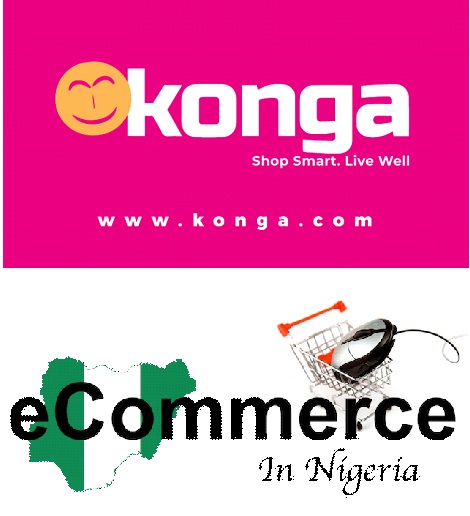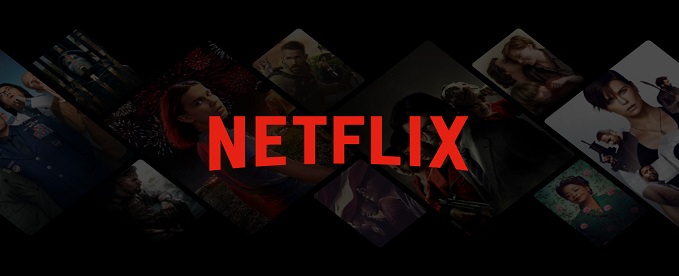Broadcasting
Jeff Bezos, Amazon and e-commerce Wealth: Can Konga Defend Africa’s Position?

By Kingsley ‘Bobby’ Collins
On Tuesday, July 6, 2021, the world awoke to the news that Jeff Bezos, founder of e-commerce giant, Amazon, had further left the rest of the world behind in the wealth accumulation race.

The Amazon boss and world’s richest man is now worth a record $211 billion.
In the process, he became the richest ever person in history and the first to gross $211bn. Reports in the media indicate that the last time anyone neared this amount was in January when Tesla boss, Elon Musk briefly hit $210 billion.
Bezos’ latest jump came after Amazon shares rose 4.7% after the Pentagon announced it was cancelling a cloud-computing contract with Microsoft Corp, which it had rivalled for the juicy contract. The development raised Bezos’s fortune by $8.4 billion, according to the Bloomberg Billionaires Index.
Interestingly, Bezos’ rise to the record books of stupendous wealth through his e-commerce money-spinner has also had a direct impact on his ex-wife.
Mackenzie Scott, who parted ways with the Amazon boss in 2019, also saw her wealth jump by $2.9bn on Tuesday, making her the 19th-richest person in the world, according to Forbes. Scott ended up with 4% of Amazon’s shares after she split from Bezos, having helped him start the e-commerce company in 1994 as the first employee.Despite publicly announcing that she has given away over $6bn since she divorced Bezos, the philanthropist ex-wife of the Amazon boss is still worth a massive $59bn. Meanwhile, Scott had recently re-married after falling in love with a science teacher, Dan Jewett, whom she met at her son’s school in Seattle.
Indeed, the rise of Jeff Bezos brings into glaring highlight the unmitigated power of e-commerce.
For many financial experts and other industry watchers, the potential is there for Bezos to eventually smash through the billionaire mark and become the world’s first trillionaire. This is hardly surprising when you consider the sheer potential of the industry and the way it has catapulted Bezos – whom many hardly gave a chance when he started out – to the zenith of the global rich list.
Global spend on e-commerce is at an all-time high and one can hardly bet against any seasoned player in this industry.
Empirical data from Statista, a German-headquartered company focused on market and consumer-based insights reveals that in 2020, retail e-commerce sales worldwide amounted to 4.28 trillion US dollars. Further, it projects that e-retail revenues are projected to grow to 5.4 trillion US dollars in 2022. With such huge figures swirling around the industry, it would hardly come as a surprise to see Amazon and its record-breaking former CEO, Bezos re-defining the definition and frontiers of wealth in the 21st Century.
Evidence from advanced economies the world over has shown that e-commerce and, by extension, technology remains arguably the most prominently positioned industry capable of determining the wealth of nations.
If you take a look at the top five list of the most valuable countries in the world, or better still, focus on how countries like the United States of America, the UK and China, have leveraged the power of local enterprise in creating thousands of jobs and ushering in prosperity for generations yet unborn, the pre-eminence of Big Tech and e-commerce behemoths in the mix, cannot be wished away. Undoubtedly, the example of Jeff Bezos, who is currently sprinting away from the rest of the world in the art and science of amassing sustainable wealth, is one that has shown that e-commerce is the future.
Gone are the days when crude oil or fossil fuel was considered the bastion of wealth generation; or when the strength of nations was illustrated in the amassing of arms and warheads.
The 21st Century is slap-bang in the middle of a global e-commerce race, one in which the second half of this century may well usher in a period where nations and entire continents will rely on mega-players as key partners to governments and other sub-national entities in the task of sustainable development and wealth creation.
But where does this leave Africa in the scheme of things?
In 2017, e-commerce in Africa was valued at $16.5 billion, with the sector expected to cross the $75 billion mark by 2025.
However, the reality is that the global e-commerce race is one in which Africa is currently punching lightly in. The continent is in need of a standard-bearer, a reliable leader which it can count on to hold its own in the global scheme of things.
Of all the current players in the African e-commerce space, Konga, a Nigerian-owned platform remains, in my estimation, the most equipped and best placed to deliver the goods.
The reasons are hardly far-fetched.
I have followed e-commerce globally for over 10 years and while Africa is still considered an outlier in the global e-commerce race, the massive strides recorded by Konga over the past three years make the company a powerful candidate that can rival the likes of Amazon and Alibaba, among others.
On a recent trip to Nigeria, I had confirmed the huge excitement that Konga was generating among investors in the international market over a potential listing on world renowned stock exchanges, such as the New York Stock Exchange (NYSE) and the London Stock Exchange. Konga is – to put it in the words of one of my acquaintances, a business partner and one of the UK’s most active angel investors – a pot of gold that he is waiting to put his last dollar in.
According to this acquaintance (who I cannot name owing to privacy concerns), Konga is a business out of Africa that himself and many others, who hold huge investment interest in e-commerce, are following closely. In his opinion, there is currently a waiting game for Konga to go public, even as he disclosed that he had recently reached out to the management of the company on this.
While in Nigeria, my research uncovered quite some interesting facts and opened my eyes to the buzz about Konga.
Indeed, there is hardly any other e-commerce player in Africa that can account for the leverage which Konga is currently enjoying as a result of its composite nature. Brick and mortar stores were a recent addition to the sphere of e-commerce which centred, from inception, on online shopping. But the management of Konga had the insight of being the first to fuse these two channels, thereby opening up a new frontier in the world of e-commerce. It is hardly surprising to see the likes of Amazon following suit.
But this is hardly what has made Konga the ideal candidate to defend Africa’s position in the global e-commerce race.
In Konga, Nigeria and Africa have a brand that has defied the pitfalls that have long been adduced as the downfall of most players on the continent. These include payments, logistics, technology, customer service, warehousing/inventory management, quality of products offered, ethics/corporate governance, strategy/tact and trust.
In all the aforementioned areas, Konga is winning.
Through KongaPay, a mobile wallet licensed by Nigeria’s Central Bank, Konga remains arguably the only e-commerce player in Africa with a certified payment system. Furthermore, Konga has resolved the challenge of logistics which it even aids other external parties troubleshoot through Kxpress, its in-house delivery company. No other company better understands the terrain in Africa’s biggest economy than Konga – a factor that testifies to the edge that the company holds even when pitted against global giants like Amazon and Alibaba on this turf. My findings also reveal that the company owns either directly or indirectly about 14 massive regional warehouses across Nigeria, including the biggest in Lagos, Nigeria’s commercial nerve-centre.
In the area of technology, Konga is believed to be home to a well-fortified arsenal of tech talents building and maintaining the many apps driving its operations and keeping many fintech platforms alive in Nigeria. This is in addition to its ongoing investment in cloud computing and AI.
There are reports that the company has also recently diversified into the healthcare sector, with feelers predicting that another major disruption is in the offing.
And in the area of products quality, ethics and trust, Konga has further put a big gap between itself and others. There is a general consensus among thousands of Nigerians who participated in a survey I carried out that Konga remains the most reliable and trusted player in Nigeria’s e-commerce market, which research shows, currently accounts for nearly 35% of the African whole.
Equally worth hailing is the fact that Konga, till date, is yet to raise any form of external investment. This is a big testimony to the belief of the management of the company in its strategies and long-term vision for the business.
There is no disputing the fact that the management of Konga has mined from the experience of its current owners – the Zinox Group – whom I understand, operate arguably Africa’s biggest technology group and who have been in business for many successful years. One can only advise the management of Konga to stay true to their tact and continue to interpret and align with the DNA of their business ideals.
In Konga, Africa has a battle-ready war-horse that the continent can ride on in unlocking the undoubted potential of e-commerce as the new gold.
The earlier the Nigerian Federal Government and its counterparts across the states wake up and embrace this powerful platform, the better for the future fortunes of the country.
Kingsley ‘Bobby’ Collins is a visiting researcher to Nigeria and a global e-commerce enthusiast
Broadcasting
Netflix Hikes Subscription Fees Again in Nigeria over “Market Conditions”

Netflix has increased its subscription fees in Nigeria for the third time since 2024, with the Premium Plan rising by 21.43%, from ₦7,000 to ₦8,500 per month.

This marks the streaming platform’s first price adjustment in 2025.
Other subscription tiers have also been affected.
The Standard Plan now costs ₦6,500, up from ₦5,500—a hike of 18.18%.
The Basic Plan has increased from ₦3,500 to ₦4,000, while the Mobile Plan moved from ₦2,200 to ₦2,500, reflecting increases of 14.29% and 13.64% respectively.
The latest adjustment aligns with Netflix’s broader global pricing strategy, which the company has linked to its ongoing investment in content and platform development. In a previous communication to investors, Netflix stated, “As we invest in and improve Netflix, we’ll occasionally ask our members to pay a little extra to reflect those improvements. Which in turn helps drive the positive flywheel of additional investment to further improve and grow our service.”
While the company did not explicitly cite inflation in its most recent update, its website indicates that local economic factors influence its pricing structure.
“Price changes are made to respond to local market changes, such as changes to local taxes or inflation,” the statement read.
The move mirrors similar pricing shifts among other major digital and entertainment services in Nigeria.
Companies including Google, DSTV, GOtv, and Microsoft have also raised subscription rates, attributing their decisions to continued inflationary pressures and a weakening naira.
Broadcasting
NBC, Nigcomsat Launch Satellite Plan to Transform Broadcasting

National Broadcasting Commission (NBC) and Nigerian Communications Satellite Limited (NIGCOMSAT) have jointly introduced “The Big Picture’, a flagship initiative under Nigeria’s renewed Digital Switchover (DSO) project.

Under the project, Nigerian households will for the first time, gain access to high-quality digital broadcasts via affordable satellite dishes, hybrid devices, and internet-enabled set-top boxes.
Backed by President Bola Ahmed Tinubu and in line with his Renewed Hope Agenda, this strategic shift marks a significant step toward transforming Nigeria’s broadcasting landscape by leveraging the country’s sovereign satellite infrastructure.
At the heart of the initiative is NigComSat-1R, Nigeria’s only communications satellite in orbit, which will play a critical role in delivering Direct-to-Home (DTH) broadcasts across the entire Nigerian territory.
This satellite-first approach eliminates the traditional dependence on terrestrial transmission towers, accelerating the nationwide rollout of digital broadcasting by over 65%.
It also offers a scalable, cost-effective, and future-ready model for expanding digital access and promoting national storytelling.
Key figures, including: Charles Ebuebu, director-general, NBC; and Jane Nkechi Egerton-Idehen, managing director, Nigcomsat, have welcomed this forward-thinking strategy, emphasising its importance in maximising the use of national satellite assets and ensuring inclusive access to digital content.
An estimated 10 million homes equipped with DVB-S2-compatible televisions or decoders will have immediate access to free-to-air channels, while others will benefit from next-generation hybrid devices that combine satellite feeds with online streaming capabilities.
These new branded devices are designed with the country’s youth-dominated demographic in mind over 60% of the population is under the age of 25.
They will feature pre-installed apps, voice search functionality, parental controls, and seamless integration with NigComSat’s Electronic Programme Guide (EPG), offering an intuitive and engaging user experience.
In a data-driven upgrade to Nigeria’s broadcasting ecosystem, NBC is also partnering with global analytics firm GARB to introduce real-time audience measurement technology.
This will enable broadcasters, advertisers and content creators to analyse viewership trends across regions and devices, helping to tailor content more effectively and drive higher audience engagement. The introduction of this system is expected to boost advertising revenue by as much as 300% by 2026.
The success of “The Big Picture” will rely on robust collaboration between public and private stakeholders.
The Broadcasting Organisation of Nigeria (BON) and other content partners are expected to supply 60% of programming for the new 120-channel platform, using both original and repurposed content.
Meanwhile, local manufacturers will contribute by producing around 5 million compliant devices annually, a move projected to create over 20,000 jobs in assembly plants nationwide.
Broadcasting
ACAMB Champions Bankers Wellness with Aerobics Fitness Session

As part of its commitment to promoting a healthier and more resilient banking workforce, the Association of Corporate Affairs Managers of Banks (ACAMB) is organizing a special Aerobics Fitness Session on Saturday, May 31, 2025 at the Lagoon Front of the Eko Atlantic City.

The session is open to all bankers and marketing communication professionals within the industry and will feature a lineup of fun and energizing activities aimed at boosting physical and mental wellbeing.
With stress levels and burnout on the rise in high-pressure sectors like banking, ACAMB is taking, as it has done over the years, proactive steps to encourage lifestyle habits that support overall wellness and productivity.
Participants will begin the morning with a body warm-up and short walk to get their energy flowing, followed by an exciting dance aerobics session designed to elevate heart rates and lift spirits.
The day will continue with interactive fitness games that promote movement and team bonding, and will wrap up with a friendly but motivating fitness challenge to inspire healthy competition and personal bests.
“Bankers are vital to the financial ecosystem, and their wellness must be a priority,” said Rasheed Bolarinwa, President of ACAMB.
“This aerobics session is a powerful way to foster a culture of health, team bonding, and preventive care. It reflects our belief as ExCO that a strong mind and body, are essential for long-term professional excellence.”
The session is expected to kick off early in the morning to take advantage of the fresh morning air, allowing participants to start their weekend with energy, movement, and connection. It also presents an opportunity to unwind and build camaraderie amongst colleagues outside the traditional office setting.
This initiative is one of several wellness-focused programms ACAMB is rolling out to reinforce the importance of employee wellbeing in corporate and marketing communication and the broader banking ecosystem.
The Association of Corporate Affairs Managers of Banks (ACAMB) is the recognized professional association for marketing communications and public affairs executives in Nigeria’s banking industry.
ACAMB drives ethical communication standards, promotes internal and external stakeholder engagement, and supports member banks in advancing reputation, trust, employee growth and wellbeing.

 E-Business3 days ago
E-Business3 days agoAXIAN Telecom Invests in Jumia Post-MTN Era
- E-Financial3 days ago
UBA Compiles with NCC, to Deduct USSD from Customers’ Accounts

 E-Business3 days ago
E-Business3 days agoNigeria Strengthens Cybersecurity, Launches National Cleanup Plan

 News3 days ago
News3 days agoARCON to Crackdown on AI-Generated Fake Ads

 Telecom3 days ago
Telecom3 days agoUnion Bank and PAPSS Revolutionize Cross-Border Payments

 News3 days ago
News3 days agoFG, UNICEF Partner to Train 20m Youths on Digital Skills

 Telecom3 days ago
Telecom3 days agoMTN Nigeria Unveils 21 Days of Y’elloCare to Empower Communities through Digital Tools

 Telecom2 days ago
Telecom2 days agoTelcos Threaten to Disconnect Banks over Misinformation on New USSD Charges




























